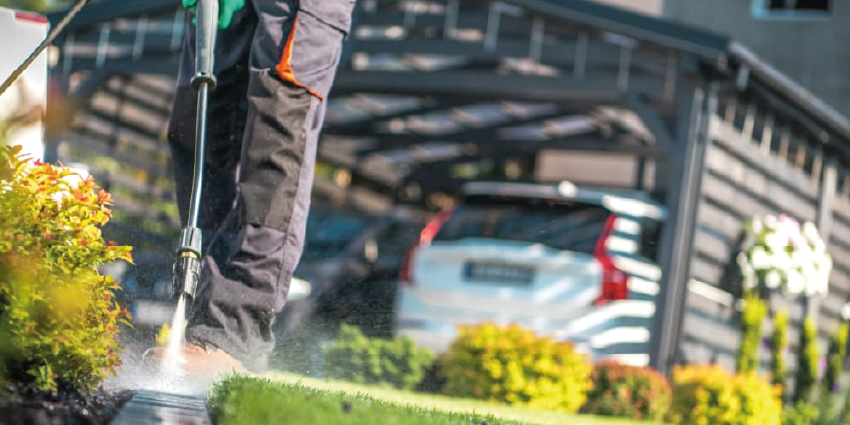Paver sealing
If you’ve invested in a paver patio or driveway, you may be wondering, «should I seal my concrete pavers?»
There are many different benefits to sealing concrete pavers, but it is not always necessary. To decide whether or not to seal your concrete pavers, it is essential to examine your expectations and how long you want them to last.
Paver sealer is a great tool for keeping paver driveways, patios, walkways, and pool decks in pristine condition, but it’s not always necessary. While not essential, pavers that are not sealed typically develop weeds in the cracks, lose color over time, and may even suffer from shifting caused by a lack of jointing sand.
¿Why should I seal my pavers?
While pavers do not need to be sealed, most of the time it is what consumers choose for different reasons. In addition to keeping the outdoor environment in pristine condition, sealing pavers has four technical benefits. These four benefits include protecting pavers from fading, enriching colors, limiting staining, and securing sand for interlocking joints.
Protect your pavers from fading while enriching the colors.
After you have invested in pavers, whether it is a patio, pool deck, etc., it is important to seal the pavers to protect them from UV rays. These rays, which are known to negatively impact the skin, also negatively impact the surface of the pavers.
To prevent pavers from discoloring, it is important to seal them. Even the toughest pavers don’t stand a chance against the sun, and concrete will even discolor over time due to UV rays. Choosing to seal your pavers will keep the color uniform and fade-free.
Choosing to seal your pavers not only keeps the color intact, but can also increase the intensity of the colors.
Limit stains
A widely accepted benefit of sealants is that they limit staining. When you use sealers, pavers become less porous, which helps decrease their ability to absorb things like dirt. This will help your pavers stay cleaner, fresher, and stain-free.
Secure sand for interlocking joints
One of the most important benefits of sealants is the way they secure sand for interlocking joints. When you add joint stabilizing sealers to your pavers, the joint sand between the pavers will harden, which helps keep the pavers firm. This can also prevent weeds from growing between the joints of the pavers.
¿When should pavers be sealed?
Depending on the manufacturer, this waiting period may vary. They usually suggest waiting at least 1 year to allow natural efflorescence (a dusty-looking buildup on the stone) to come out of the pavers. If your sealer is breathable, then you won’t have to wait at all and will be able to seal your paver immediately after installation.
¡Contact us today!
¡Contact us today to discuss sealing your pavers and getting the longest life expectancy out of them!

